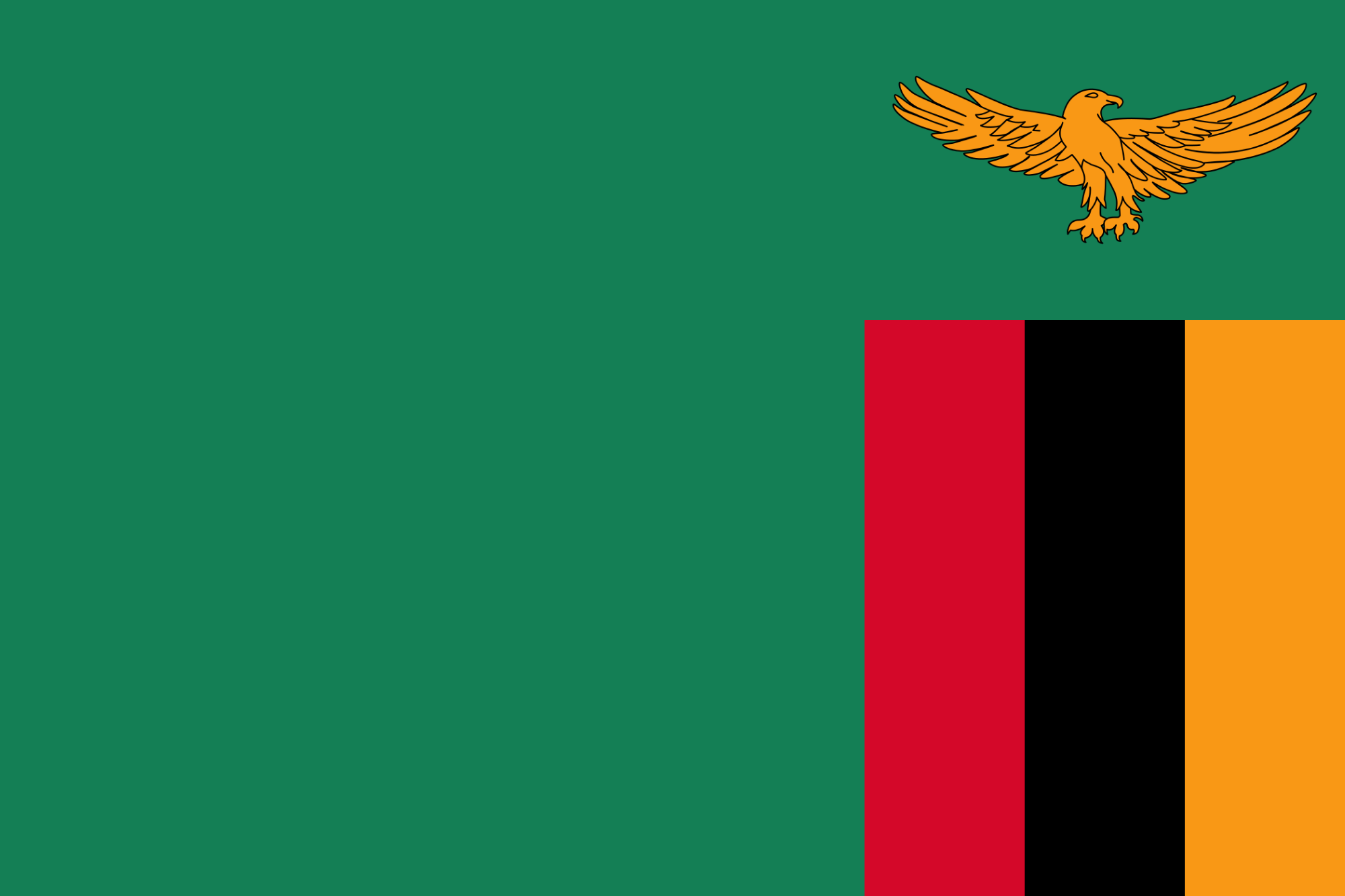
Officially known as the Republic of Zambia, Zambia is a landlocked country located in southern Africa, bordered by eight countries such as Tanzania, Namibia and the Democratic Republic of the Congo. It is known for its vast wilderness, diverse wildlife, friendly people, and major natural attractions like Victoria Falls, Zambezi River, the South Luangwa National Park, and the Lower Zambezi National Park. Its capital, Lusaka, is the largest city in the country, located in the south-central. It's a fast-growing urban centre that serves as the political, economic, and cultural heart of Zambia, possessing a mix of modern buildings, traditional markets (like Soweto Market), shopping malls, embassies, and cultural centres.
Droughts, floods, and extreme temperatures, including epidemics, crop pest infestations, volcanic activity and earthquakes.
In Zambia, penalty units are used to calculate fines where the actual value of a penalty unit depends on the legislation/statutory instrument in force (Laws often say 'X penalty units' rather than a fixed Kwacha amount). The value of a penalty unit (as of April 2024) is equal to 40 ngwee (K0.40/~£0.01). Here is a breakdown of some traffic and other offences:
There was a 'No Bribes but Fines' campaign launched, meaning traffic offences should result in official fines rather than illicit payments to officers. And police have been directed to use Point of Sale machines for paying traffic fines etc., to avoid cash‑bribe issues.
The official language of Zambia is English, but Bemba, Nyanja, and Tonga are also spoken.
In Zambia, driving is done on the left‑hand side of the road. The minimum age to drive is 16, but you have to be at least 21 or 23 to rent (depending on rental company) and have held an valid licence for at least one year, but some companies may charge a 'young driver surcharge' to those under 25. UK drivers generally need an International Driving Permit (IDP) for Zambia, especially for stays longer than 90 days.
Many major roads are paved and well‑maintained. However, many rural roads are unpaved, and may be severely affected in rainy season (mud, flooding, wash‑outs) etc. Be cautious when driving at night, especially outside towns, and be alert for pedestrians, animals (especially at dawn/dusk), stray livestock, broken down vehicles on the road. Also, police roadblocks are common. Be courteous, and show documents when asked.
Petrol (91 - 93 octane) and diesel (low-sulphur) are the most common in Zambia. Fuel is reliably available in urban areas, with stations open 24/7 in major cities, but stations can be scarce in rural or remote areas, where fuel may be limited and more expensive. It is recommended to carry extra fuel in a metal jerry can (plastic cans often not allowed at filling stations).
Cash is widely accepted, but card is only accepted in some stations, mostly in major cities like Lusaka, Ndola, Livingstone, and along main highways (Cash is essential in remote/rural areas). Zambia has attended service at fuel stations, but check that the meter starts at zero before fuelling.
The legal limit is 0.08%.
Required for driver and all passengers.
Children under 10 cannot occupy a front passenger seat, and must be secured in a car seat at the rear.
Check out more of our Country Guides: